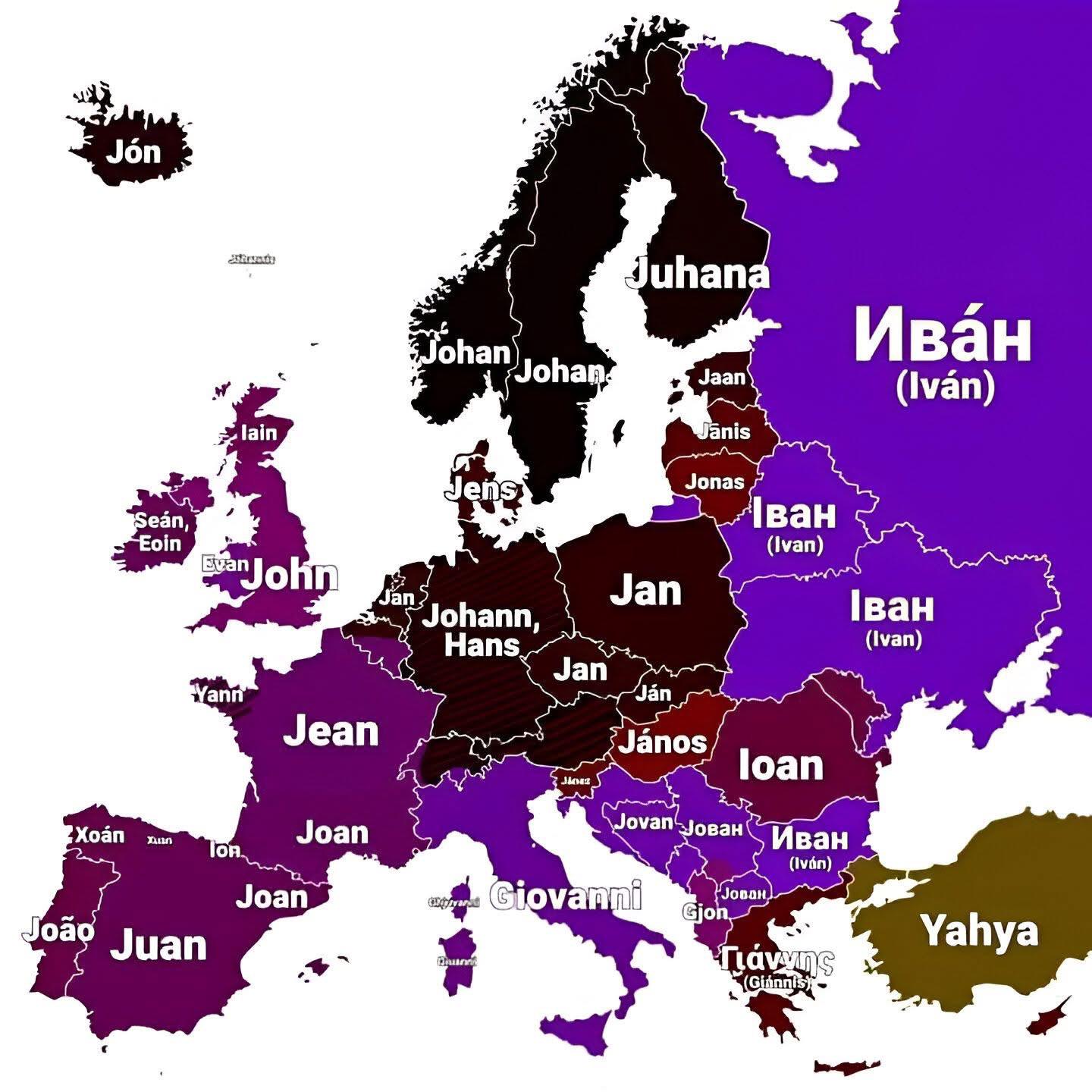Johannes in Different Languages Map


David Chen
Data Visualization Specialist
David Chen is an expert in transforming complex geographic datasets into compelling visual narratives. He combines his background in computer science ...
Geographic Analysis
What This Map Shows
This intriguing map titled "Johannes in Different Languages" illustrates the various linguistic representations of the name "Johannes" across different cultures and countries. Each region is color-coded, indicating how the name is adapted phonetically and orthographically in various languages. This visual representation does not only serve as a linguistic tool but also opens the door to a broader understanding of cultural identity and naming conventions around the world.
Deep Dive into Name Variations
Names are more than mere labels; they carry history, culture, and identity. The name "Johannes" has deep roots, tracing back to the Hebrew name "Yohanan," meaning "God is gracious." This biblical name has transcended geographical boundaries and evolved into various forms, including John, Juan, Giovanni, and Ioannis, among many others. Interestingly, the adaptations often reflect local languages, phonetics, and cultural nuances.
For instance, in English-speaking countries, the name appears as John, which has been consistently popular since the Middle Ages. In contrast, in Spanish-speaking nations, it transforms into Juan, where it holds immense cultural significance, often associated with historical figures and cultural icons. Similarly, in Italy, Giovanni is a common variant, deeply embedded in Italian history and tradition. The adaptation of Johannes into different cultures not only reflects the phonetic shifts but also the historical and religious contexts that influenced these variations.
Have you ever wondered why certain names become popular in specific cultures? Often, it’s linked to historical figures, saints, or even contemporary celebrities. In many cultures, names can denote social status, family lineage, or even aspirations. The name Johannes, with its biblical origin, has seen variations that embody the cultural and religious identity of the people who bear it.
Regional Analysis
Breaking down the map, we can see distinct patterns emerge in how the name Johannes is adopted in various regions. In Northern Europe, particularly in countries like Sweden and Norway, the name is often retained in its original form or slightly altered to Johan. This reflects the historical influence of Lutheranism, where many individuals were named after biblical figures.
In contrast, countries in Southern Europe, such as Spain and Italy, present a richer diversity of adaptations, showcasing local languages' influence. For example, in Spain, the name Juan is incredibly prevalent, often associated with famous historical figures like Juan Carlos I, the former king. Similarly, in Italy, the name Giovanni is not only popular but has found its way into various cultural references, including literature and art.
What's fascinating is the variation in naming trends among different cultures. In some regions, Johannes has transformed into more modern adaptations, such as the French version, Jean, or the Hungarian János. Each variation holds its own cultural significance and showcases how names evolve over time while maintaining their roots.
Significance and Impact
Understanding the variations of the name Johannes is more than just an exercise in linguistics; it speaks volumes about cultural identity, migration, and the blending of languages. As globalization continues to influence societies, we see names and their adaptations become a focal point for discussions about heritage and identity. For instance, as people migrate and cultures intermingle, names often shift, reflecting a blend of influences that can signify belonging or adaptation.
Current trends show that names are increasingly becoming a topic of interest in discussions around cultural appropriation and identity. People are becoming more aware of how names can signify deeper connections to culture, religion, and history. This map serves as a reminder of the rich tapestry of human language and the stories behind our names, making it an essential resource for anyone interested in cultural studies.
In conclusion, the map of "Johannes in Different Languages" offers a unique lens through which we can explore the intersection of language, culture, and identity. As we navigate through an increasingly interconnected world, understanding these nuances becomes vital in fostering appreciation and respect for the diverse cultures that populate our globe.
Visualization Details
- Published
- August 16, 2025
- Views
- 114
Comments
Loading comments...